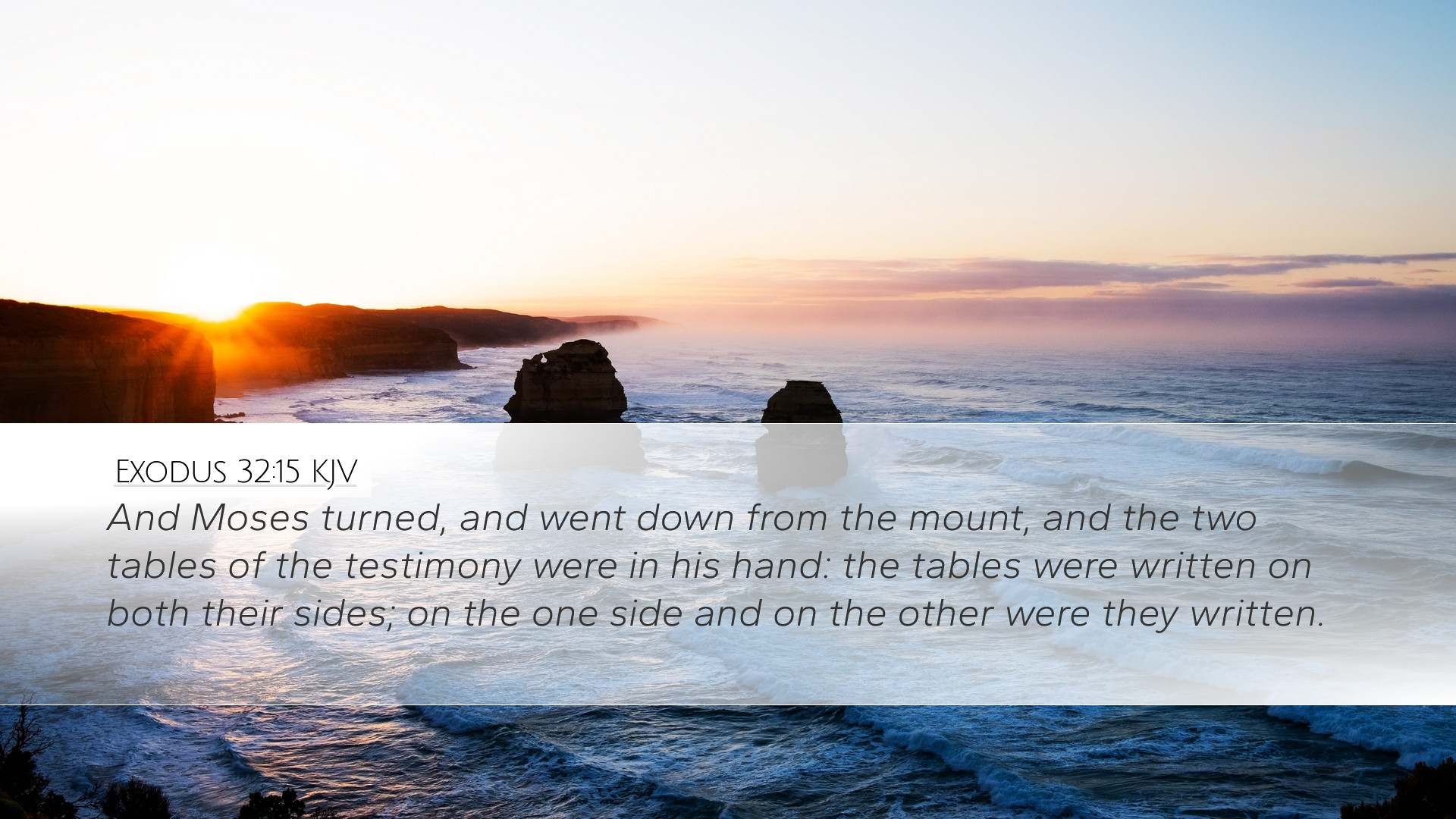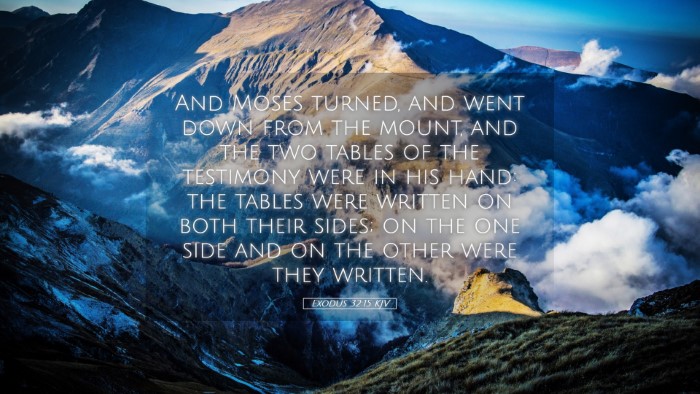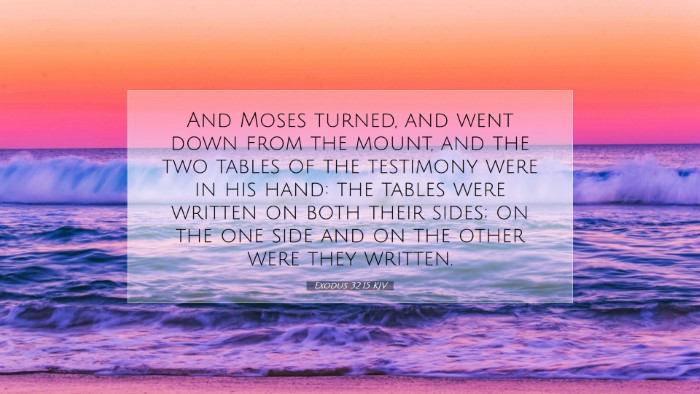Commentary on Exodus 32:15
Verse Context: Exodus 32:15 states: "And Moses turned, and went down from the mount, and the two tables of the testimony were in his hand: the tables were written on both their sides; on the one side and on the other were they written." This verse captures a critical moment in the narrative of Moses' interaction with God, as he descends from Mount Sinai with the tablets of the law, symbolizing the covenant between God and Israel.
Introduction
This commentary synthesizes insights from renowned public domain scholars, including Matthew Henry, Adam Clarke, and Albert Barnes, to explore the theological and practical implications of Exodus 32:15. This passage not only relates to the immediate context of Israel's transgression but also emphasizes the significance of divine law and the covenant relationship.
1. The Significance of the Tablets
Divine Authority: The tablets represent God's unchanging law, demonstrating His supreme authority over His people. According to Albert Barnes, the inscriptions are a direct revelation from God, establishing that the moral and ceremonial standards outlined therein are not merely human constructs but are divinely ordained.
Written on Both Sides: The detail of the tablets being inscribed on both sides is noteworthy. Adam Clarke observes that this may signify the comprehensive nature of God's law, addressing every aspect of human conduct. It emphasizes that God's commandments are to be holistically applied in all areas of life.
2. The Role of Moses
Intercessor and Leader: Moses serves as the mediator between God and Israel. His descent from the mountain following God's revelation signifies the vital role of leadership in conveying God's will. Matthew Henry highlights this leadership aspect, characterizing Moses as a type of Christ, who also mediates between God and humanity, bringing the law to the people.
Response to Idolatry: The context surrounding this verse involves Israel’s worship of the golden calf—a sign of their rebellion. Moses' return, therefore, is not merely about relaying information but is a proactive measure to confront and rectify the apostasy occurring among the people, as pointed out by both Clarke and Barnes.
3. Historical and Theological Implications
Historical Context: In the unfolding narrative, Israel’s quick deviation from God's commands highlights human frailty and the ease of falling into idolatry. Both Barnes and Henry stress that this serves as a warning of the dangers inherent in forgetting God’s mighty works and falling prey to syncretism.
Theological Reflection: The passage prompts theological reflection on covenant faithfulness. As these tablets were pivotal to Israel’s identity as God’s chosen people, the implications of covenant obsolescence are significant. The law both sets boundaries and shapes community ethics, as discussed by Clarke.
4. Application for Today
Understanding God’s Law: The modern reader is encouraged to appreciate the necessity of God's law in moral and ethical considerations. Just as Israel was called to adhere to God's commands, contemporary believers, as noted by Henry, should also revere the Scriptures as the ultimate authority guiding their lives and communities.
Covenant Community: This passage extends an invitation to embrace the concept of community within the church. The unity established by adherence to God’s law reflects the desired relationship between God and His people. Barnes suggests this mutual relationship is foundational for a thriving spiritual community.
Conclusion
Exodus 32:15 serves as a vital text that echoes through the ages, reminding us of the authority of divine law, the importance of genuine leadership, and our need for a covenant relationship with God. As we study this narrative, may we reflect on the seriousness of our commitment to God’s commands, the nature of our community, and the essential role of intercession in our walk with God.


